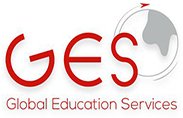Are You Ready for 2030?
We’re experiencing a new kind of generation gap. Unlike the one that emerged in the 1960s, this gap is not rooted mainly in changing beliefs and opinions—it’s a result of the technology we use to interact with the world around us.
Most people born before 1996—the so-called baby boomers, Generation X, and Millennials—acquire technical understanding and skills incrementally. Sometimes reluctantly, we learn one app or program at a time. And just when we think we’ve caught up, something new comes along. We’re continually adapting to the ever-expanding world of communications.
But young people growing up now inherently understand this world. They don’t need to adapt to an interactive communications universe—they already inhabit it.
The children born so far in the 2020s will be first, second, and third graders in 2030. Their expectations and education needs will be fundamentally different from those of older generations. Their communities will be defined by their virtual relationships, in addition to—or even instead of—physical proximity. They’ll likely look at their careers as a series of choices—not as one career choice they make at age 18 or 22. And, like the rest of Generation Z, they’ll demand more accountability and transparency from their leaders and institutions.
Expanding the possibilities
As the saying goes, we only know what we know. We all have to look beyond our own experience to rethink instructional environments and strategies, and to develop compelling experiential learning that’s relevant to students.
Consider, for example, the impact of remote work. When work can take place anywhere, families may spend extended periods of time away from home, with children learning remotely. Can we encourage students to deeply explore and share their environments, and in real time? With new flexibility, can experts from our communities teach onsite or virtual mini-courses to give kids in-depth exposure to a variety of fields?
Cognia can help with immediate learning for educators. Membership in two peer communities—the Cognia Learning Community (CLC) and the Leadership Circle—provide insight and strategies for the challenges of today and the not-distant future. These communities and our Professional Learning opportunities offer live interaction as well as asynchronous learning. Explore the CLC and the Leadership Circle.
Changing the mindset
Are we perpetuating the new generation gap by relying on the ideas and expectations of older generations? It’s time to reorient our thinking, to invest our time and energy in creating relevant education opportunities for the coming generation.
Published by Cognia
